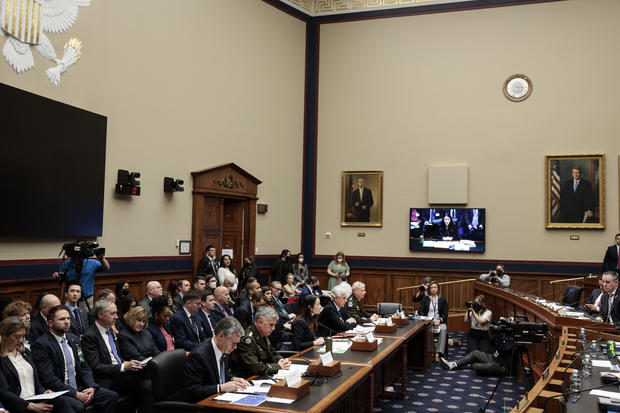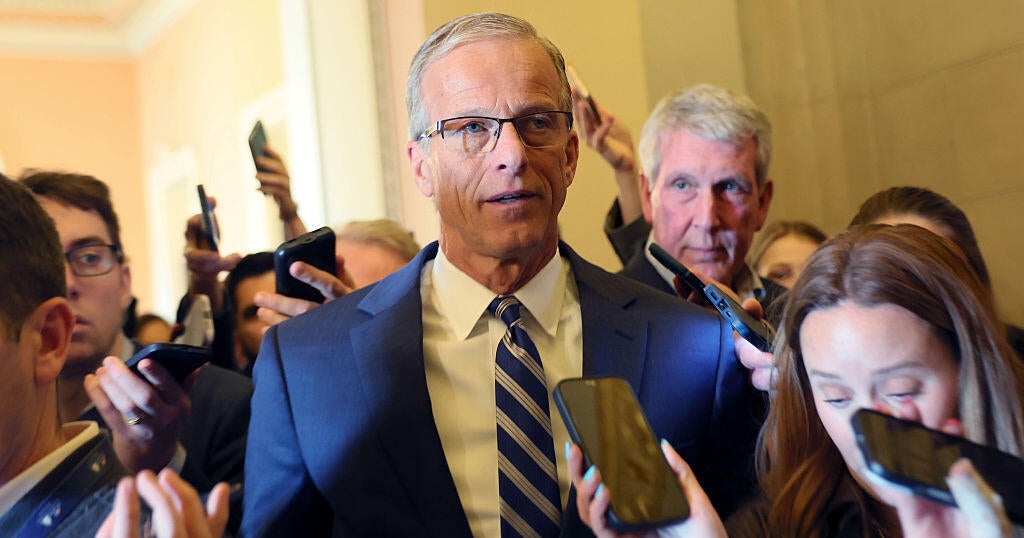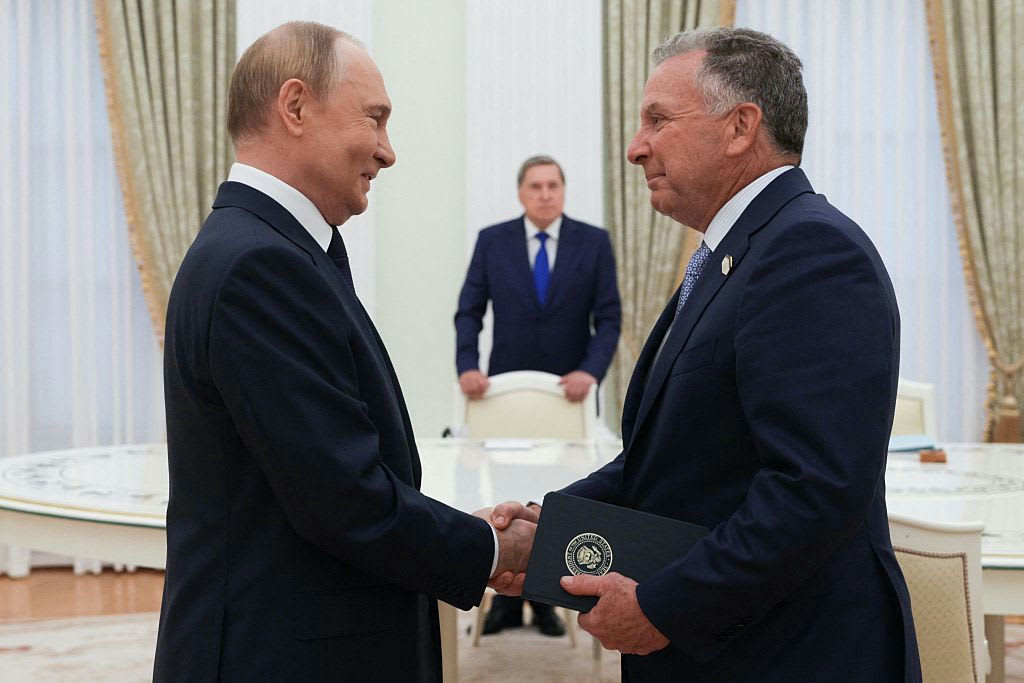Putin "unlikely to be deterred" by economic sanctions and military setbacks in Ukraine, U.S. intel leaders say
Russian President Vladimir Putin is "unlikely to be deterred" by the effect of the West's coordinated economic sanctions and his military's setbacks in Ukraine and will seek to "escalate" his country's aggression against Kyiv in the coming weeks, top U.S. intelligence leaders said Tuesday.
An "aggrieved" Putin likely "perceives this as a war he cannot afford to lose," said director of national intelligence Avril Haines, who testified along with other intelligence chiefs before the House Intelligence Community as part of an annual hearing on worldwide threats.
She was joined by CIA Director William Burns, FBI director Christopher Wray, Cyber Command Commander and NSA director Gen. Paul Nakasone, and Defense Intelligence Agency director Lt. Gen. Scott Berrier, who will all appear again for additional testimony before the Senate Intelligence Community on Thursday.
Haines said Moscow had encountered "significantly more resistance" from Ukraine than it had anticipated, and, while it was unclear if Russia still planned to attempt a takeover of the whole country, that it would be "especially challenging" for the Russians to hold and control Ukrainian territory in the face of what would likely be a "persistent and significant insurgency."
Berrier, who heads the Pentagon's military intelligence arm, said Russia's military had suffered "somewhere between 2,000-4,000" casualties - a "low-confidence" assessment he said was drawn from intelligence and open sources.
Burns, the CIA director, said that Mr. Putin had been for years stewing in a "combustible combination of grievance and ambition," and had embarked on a military invasion based on a number of flawed assumptions – including about the resilience of Ukrainian forces, the robustness of the response from the West, the ability of the Russian economy to weather sanctions, and the strength of his own military.
"He's been proven wrong on every count," Burns said, noting the Russian leader's views had in recent years "hardened" as he became "more insulated" from diverse points of view.
Burns added, however, that an "angry and frustrated" Putin would likely continue his military's campaign with little regard for the civilian toll it might take, and despite the fact that he had "no sustainable political end game."
"He is likely to double down and try to grind down the Ukrainian military with no regard for civilian casualties," he added, predicting "an ugly next few weeks."
He also said Chinese president Xi Jinping and other political leaders were "unsettled" by events in Ukraine, including how they had driven Europe and the United States closer together. Beijing was also increasingly wary of the potential "reputational damage" its close association with Moscow could produce, Burns said.
Berrier estimated Ukrainians would only have enough food and water to last "10 days to two weeks" once supply lines were cut. "It will become somewhat desperate," he said.
Haines said U.S. intelligence agencies were watching "very closely" for any movements of Russian strategic and nuclear weapons, acknowledging Putin's decision to put his forces on heightened alert last month was "highly unusual."
"We're not seeing something at this stage that he is doing something different than he has been in the past," Haines said. "We do think that he is signaling, that he is attempting to deter," she said.
The intelligence community's annual written report, released Tuesday, assessed that Russia "does not want a direct conflict with U.S. forces," but viewed its nuclear capabilities as "necessary for maintaining deterrence and achieving its goals in a potential conflict against the United States and NATO."
"It sees a credible nuclear weapons deterrent as the ultimate guarantor of the Russian Federation," the report said.





